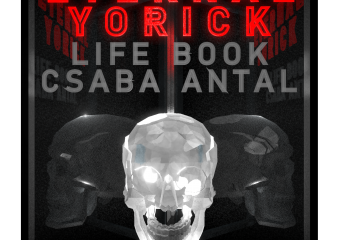
Antal Csaba or Faith in the Theatre
The theatre has fallen to pieces, something it has had to face since the beginning of directing. There are two opposing camps, defined by their radicalism, which influence the fate of European theatre. The undecided, the lukewarm, are being 'vomited out', as the Apocalypse says. Jerzy Grotowski loved and echoed the biblical statement that contrasted the determined competitors with the compromisers, who round everything off, settle differences and compromise without commitment.
What are these two sides?
On the one hand, there are theatre people who want to improve the theatre and who are trying to get to the real heart of the matter. At the head of this group is Gordon Graig, who is joined by the advocates of the "empty space", from Copeau to Brook, to take Grotowski and the "poor theatre" to the extreme. They are all ready to save the theatre in order to achieve a clear link between the actor and the audience.
On the other hand, there are those artists who, without reservation or suspicion, mobilise all the resources of the theatre in the name of a communal dream. They create theatre that is free from the slightest doubt, they dedicate themselves to the practice of their art. Their most coveted representatives are Meyerhold or Reinhardt, however distinguished on the surface, or later Wilson and Mnouchkine.
Csaba Antal undoubtedly belongs to this second family. This is the spirit that runs through his veins. He embraces it and works to fulfil it. The diversity of his sets and costumes is proof of his faith in the theatre. It is a faith that is free of any caution, which allows him to explore his theatrical expression to the fullest, to reveal the sources of beauty or to express his tragic anguish. No exaggeration, no overemphasis, he does not fall into this trap. With him, it is all about the joy and pleasure of 'inhabiting the stage'. Without guilt and without rage, Csaba Antal is an advocate of consensus, of an intense and concrete "yes" as a working method. When he reads and interprets texts, he always does so in the spirit of a positive relationship with the stage. Csaba Antal is a representative of the artistic theatre, but not of an introspective theatre that is a prisoner of sophistication. That would consume his energies. His art lies in the concrete substance and source of theatre, which he explores and uses with commitment and passion. He has no doubts about the theatre, because for him the theatre and the dialogue with it is primordial.
The diversity of Csaba Antal's work as a set designer is captivating, but this diversity does not mean neutrality or lack of identity. His art is expressed in the richness of his solutions and in his great journeys with important texts or famous operas. He is a man of the theatre who is stranger to the slightest insult. He does not attack the theatre, he embraces it.
Csaba Antal belongs to a family of artists who believe in the power of the theatre, who believe in its ability to create the world. And this exhibition confirms that beyond all doubt.
Georges Banu
*
After graduating as an architect, Csaba Antal studied scenography with Joseph Svoboda in Prague and then continued his studies at the Université de la Sorbonne in Paris.
During his career he has worked at the Katona József Theatre and the Vígszinház in Budapest, the Comédie Française, Théâtre de l'Odéon in Paris, the Théâtre Nationale in Strasbourg, the Piccolo Teatro in Milan, the Teatro Argentina in Rome, the Volsbühne in Berlin, the Teatro Fondazione in Emilia Romagna, the Fundació Teatre Lliure in Barcelona, in Epidaurus. He has also designed the sets and costumes at the following opera houses: Opernhaus Zurich, Oper Bonn, Oper Wiesbaden, Baadisches Staatstheater de Karlsruhe, Staatsoper Berlin, Prinzregenten Theater Munich, Teatro Massimo Palermo, Oper Leipzig, Bayreuth Markgräflisches Opernhaus.
He has also received numerous awards and honors: his work has been exhibited at the Quadrennial in Prague and the Triennial in Novi Sad, in Serbia, at the Avignon Festival, at the Kunsthalle and the Petit Palais in Paris. He is a founding member of the Union des Théâtres de l'Europe, founded by Giorgio Strehler in 1989.
He has taught at the SZFE in Budapest, the Institut für Angewandte Theaterwissenschaft in Giessen, the Théatre Nationale in Strasbourg, the Mozarteum in Salzburg, the Accademia di Brera in Milan, Harward University in Boston/Cambridge, the IUAV in Venice, ENSATT in Lyon, the Mali Theatre in Moscow, the Paris Conservatoire and the Theaterakademie in Munich.